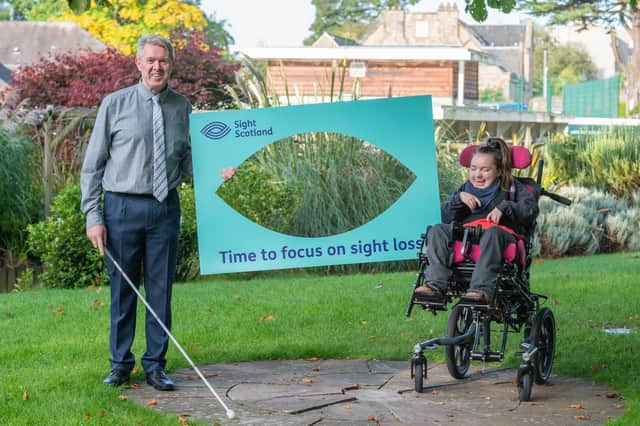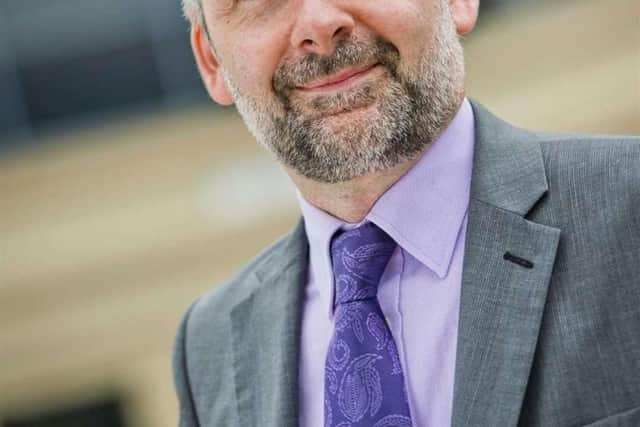People with sight loss need to know support is available - Mark O'Donnell


Even before the pandemic highlighted the importance of this support, the need to reach more people living with sight loss in our country was clear. The number of visually impaired people in Scotland is set to increase by 30,000 in the next decade to over 200,000. Every hour at least one person in Scotland starts to lose their sight.
As one of the oldest sight loss charities in the world we are looking to a future which requires us to change and broaden what we do. For this reason, we have set out new names for the sister charities which make up our group, as well as new plans which reflect our ambition to support more blind and partially sighted people in Scotland.
Advertisement
Hide AdAdvertisement
Hide AdSight Scotland and Sight Scotland Veterans were officially launched by First Minister Nicola Sturgeon as the new names of Royal Blind and Scottish War Blinded on World Sight Day, 8 October.


We also published research which makes clear why we needed to take this step. We undertook a survey of more than 400 people with visual impairment, the biggest in Scotland since lockdown, which found that more than two-thirds felt the restrictions in place to tackle coronavirus had been a worse experience for them because of their sight loss. Research we conducted with YouGov showed only half of Scots would know where to go for help if they lost their sight.
Our challenge for the future is to ensure more people with sight loss can access our services and support. We are taking forward plans to provide more services in the community, including supporting more pupils with visual impairment in mainstream schools as well as our national specialist school, the Royal Blind School. We are working to increase accessible resources and environments and to support more adults with sight loss through rehabilitation and peer support activities. We are working through our services and campaigning work to ensure more people with visual impairment have fairer chances in education and employment. We are supporting clinical research with partners to increase the chances of life-changing prevention and treatment for sight loss.
This year has been particularly difficult for blind and partially-sighted people. All of us have found social distancing tough, but if you can’t see what’s around you it can be impossible.
We need to do more as a society to ensure blind and partially-sighted people are fully included in our communities and economy and are not left behind in the aftermath of the pandemic. At Sight Scotland and Sight Scotland Veterans we are determined to build on the foundations of a proud history by playing our role in achieving a future and a society which is fairer for people with sight loss.
Mark O'Donnell as Chief Executive of Sight Scotland and Sight Scotland Veterans
Comments
Want to join the conversation? Please or to comment on this article.